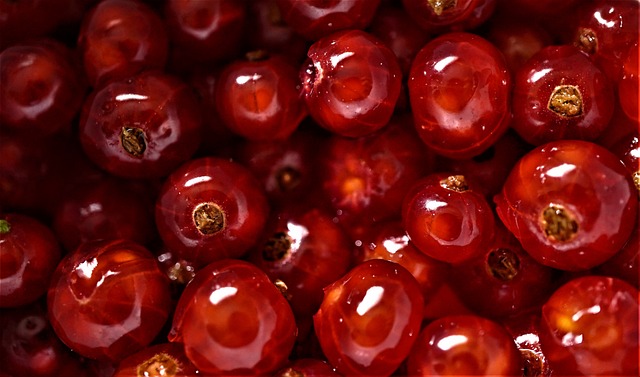Anti-inflammatory therapies like stem cell therapy, Platelet-Rich Plasma (PRP) therapy, and peptide therapy offer advanced pain relief and targeted solutions for chronic inflammation. These innovative treatments harness the body's natural healing mechanisms, modulating inflammatory responses and promoting tissue repair. Integrated with holistic management techniques focusing on both symptoms and causes, these advanced therapies form a comprehensive strategy for long-term health and optimal results in managing conditions like heart disease, diabetes, and autoimmune disorders through regenerative medicine.
In today’s world, understanding and managing inflammation effectively is more crucial than ever. This comprehensive guide explores the intricate relationship between nutrition and therapy as powerful tools to combat inflammation. From the body’s initial response to its long-term impact on overall health, we delve into a holistic approach combining advanced medical interventions like stem cell, PRP, and peptide therapy with tailored nutritional strategies for optimal inflammation management. Discover how these cutting-edge treatments offer promising relief for chronic conditions.
- Understanding Inflammation: The Body's Response and Its Impact
- Exploring Anti-Inflammatory Therapies: A Holistic Approach
- Advanced Medical Interventions: Stem Cell, PRP, and Peptide Therapy
- Integrating Nutrition with Therapy for Optimal Inflammation Management
Understanding Inflammation: The Body's Response and Its Impact

Inflammation is a natural process that serves as the body’s defense mechanism against injuries and infections. It involves a complex series of responses, including increased blood flow to the affected area, immune cell activation, and the release of chemical mediators. While acute inflammation is beneficial for healing, chronic inflammation can lead to various health issues such as heart disease, diabetes, and autoimmune disorders. This persistent state often results from an overactive immune system or prolonged exposure to irritants.
In recent years, there has been a growing interest in combining nutritional interventions with therapeutic approaches to manage inflammation effectively. Advanced treatments like stem cell therapy, PRP (Platelet-Rich Plasma) therapy, and peptide therapy offer promising anti-inflammatory benefits. These cutting-edge methods aim to modulate the body’s inflammatory response while promoting tissue repair and regeneration. Holistic inflammation management involves not only addressing the symptoms but also targeting the underlying causes, making it a comprehensive strategy for achieving long-term health and well-being.
Exploring Anti-Inflammatory Therapies: A Holistic Approach

In the pursuit of achieving optimal health and combating chronic inflammation, exploring anti-inflammatory therapies offers a promising holistic approach. These advanced treatments go beyond traditional medication, delving into the intricate relationship between nutrition and therapy for comprehensive healing. Anti-inflammatory therapies encompass various innovative techniques, such as stem cell therapy, which harnesses the body’s natural ability to regenerate and reduce inflammation. Similarly, Platelet-Rich Plasma (PRP) therapy utilizes a patient’s own blood to accelerate healing and suppress inflammatory responses.
Peptide therapy is another emerging frontier, targeting specific inflammatory pathways with precise biological signals. By integrating these advanced pain relief treatments into a holistic inflammation management strategy, individuals can experience significant benefits. Regenerative medicine, with its focus on repairing and regenerating damaged tissues, becomes a powerful tool in the fight against chronic inflammation. This multifaceted approach ensures that both the body’s nutritional needs and therapeutic interventions are addressed, paving the way for lasting improvements in overall well-being.
Advanced Medical Interventions: Stem Cell, PRP, and Peptide Therapy

Advanced Medical Interventions play a pivotal role in the holistic management of inflammation, offering targeted and effective solutions beyond conventional methods. Stem cell therapy, for instance, harnesses the body’s own repair system by introducing specialized cells that can differentiate into various tissue types, promoting healing and reducing inflammatory responses. This regenerative medicine approach has shown promise in treating chronic inflammatory conditions, providing advanced pain relief, and potentially altering the course of diseases.
Similarly, Platelet-Rich Plasma (PRP) therapy and peptide therapy are cutting-edge techniques that leverage the body’s natural healing mechanisms. PRP involves extracting platelets rich in growth factors from a patient’s blood, which then accelerates tissue repair and modulates inflammation. Peptide therapy, on the other hand, uses synthetic peptides to mimic natural signaling molecules, regulating inflammatory pathways and promoting cellular communication. These anti-inflammatory therapies offer a promising avenue for individuals seeking advanced pain management and holistic inflammation control.
Integrating Nutrition with Therapy for Optimal Inflammation Management

Integrating nutrition with therapeutic approaches offers a comprehensive strategy for managing inflammation effectively. By combining evidence-based dietary practices with cutting-edge treatments like stem cell therapy, PRP (Platelet-Rich Plasma) therapy, and peptide therapy, individuals can experience advanced pain relief and accelerated healing. These anti-inflammatory therapies, often coupled with holistic management techniques, provide a multi-faceted approach to addressing the root causes of inflammation.
Holistic inflammation management involves tailoring dietary interventions to an individual’s specific needs while complementing them with regenerative medicine. For instance, stem cell therapy for inflammation harnesses the body’s natural healing mechanisms by introducing specialized cells that promote tissue repair and reduce inflammatory responses. Similarly, PRP therapy and peptide therapy target specific molecular pathways involved in inflammation, offering targeted solutions for optimal results.
Combining nutrition with therapeutic interventions like stem cell, PRP (Platelet-Rich Plasma), and peptide therapy offers a comprehensive strategy for managing inflammation. These advanced medical treatments, alongside a tailored nutritional approach, can significantly enhance anti-inflammatory benefits. By embracing holistic inflammation management, individuals can experience improved overall health and reduced pain, leveraging the power of regenerative medicine to achieve lasting results.
